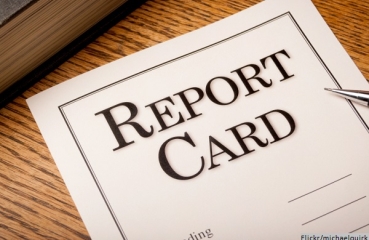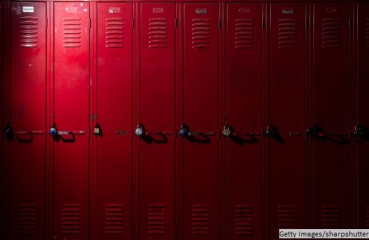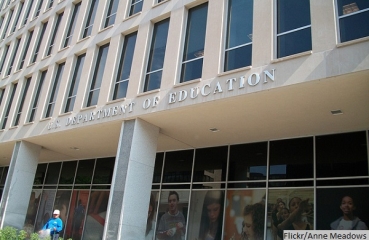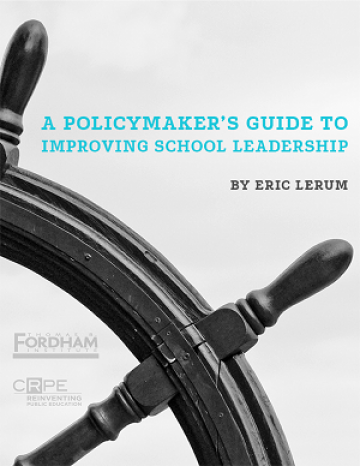Charter school effectiveness in spite of perverse incentives
Aaron ChurchillBy Aaron Churchill
One highway, two realities
Kevin MahnkenA sixth grader in Mountain Brook, Alabama, can be considered one of the luckiest in the country, enrolled in a district where he and his classmates read and do math three grade levels above the average American student.
Paying homage to charter schools' early trailblazers
Chester E. Finn, Jr., Brandon L. WrightThis is the first in a series of essays marking the twenty-fifth anniversary of America’s first charter school law. These commentaries are informed and inspired by our forthcoming book (co-authored with Bruno V.
The Leicester City edition
On this week’s podcast, Mike Petrilli and Robert Pondiscio talk Trump, the role of test scores in determining school quality, and the opt-out movement. During the Research Minute, Amber Northern explains how the threat of NCLB sanctions reduced teacher absences.
Students need opportunities to flex their creative muscles
Although we consider creativity and critical thinking two of the most important skills today, children often have limited opportunities to flex their creative muscles. Parents and teachers need to encourage creative children to find at least one outlet, along with venues and audiences to showcase their work.
What reformers can do to expand charters and choice besides advocating for policy change
Michael J. PetrilliA few weeks ago, I argued that policy change is not the only path to education reform, floated five other approaches for improving educational practice, and promised to flesh them out in future posts.
Rely on local actors, instead of faulty information, to make judgements about school quality
Jay P. GreeneEditor's note: This post is the third in an ongoing discussion between Fordham's Michael Petrilli and the University of Arkansas's Jay Greene that seeks to answer this question: Are math and reading test results strong enough indicators of school quality that regulators can rely on them to determine which schools should be closed and which should be expanded—even
Revamp of Charter Schools Program incentivizes (mostly) the right things
Jamie Davies O'LearyThe federal Charter Schools Program (CSP), which provides seed money for charter start-ups primarily through competitive state grants, got an upgrade in the Every Student Succeeds Act (ESSA) in December.
Shut bad schools for low performance, but don't draw conclusions from test scores alone
Michael J. PetrilliBy Michael J. Petrilli
The weak predictive power of test scores
Jay P. GreeneThe school choice tent is much bigger than it used to be. Politicians and policy wonks across the ideological spectrum have embraced the principle that parents should get to choose their children’s schools and local districts should not have a monopoly on school supply.
When personal beliefs and duties collide
Personal belief cannot supersede public duty
Teaching to the Student: Charter School Effectiveness in Spite of Perverse Incentives
Aaron ChurchillTest score inflation or genuine increase in proficiency?
Virtual schools mean real work for charter supporters
Chad L. AldisEfforts to reform charters must include all school types
America's Report Card: We're still ignoring low-income high-achievers
Chester E. Finn, Jr., Brandon L. WrightLast week, the Department of Education released the 2015 Nation’s Report Card for twelfth graders. As with the fourth- and eighth-grade scores provided last fall, there was little to celebrate. In the core subjects of math and reading, average scores held firm at the same unimpressive level they’ve been at since 2009.
Coming next week: Jay Greene and I debate school choice and the role of test scores in determining school quality
Michael J. PetrilliNext week, in a series daily blog posts, Jay Greene and I will explore areas of agreement and disagreement around the issue of school choice and school quality.
A deep dive into Ohio’s charter school enrollment data
Aaron ChurchillOhio's families need more high-quality choices in more locations
Opportunity awaits: A market analysis of Ohio’s charter school sector
Jessica PoinerThe Buckeye State has a better opportunity than ever to raise its charter game
Announcing the Fordham Institute's third annual Wonkathon. This year's topic: ESSA and parental choice
Michael J. PetrilliIn 2014, we hosted our first-ever Wonkathon, which was dedicated to the subject of charter school policy.
The causes and consequences of test score manipulation in New York
Amber M. Northern, Ph.D.By Amber M. Northern, Ph.D.
School choice, student mobility, and school quality in New Orleans
Robert PondiscioBy Robert Pondiscio
Is there actually a national teacher shortage?
Kevin MahnkenThe whole point of the Every Student Succeeds Act was to revert financial and regulatory authority back to states after No Child Left Behind’s era of federal supremacy.
The Office for Civil Rights jumps to conclusions on school discipline
Michael J. PetrilliBy Michael J. Petrilli
The LEMONADE edition
On this week’s podcast, Mike Petrilli and Robert Pondiscio celebrate Prince’s little-known legacy in the world of education, assess education policies that hold parents accountable, and question the alleged diversity of the opt-out movement. During the Research Minute, Amber Northern examines the causes and effects of test score manipulation in New York State.
Using Google Maps to get charter students to school
Outliers make for great stories and headlines, but they don’t do much for policy discussions—particularly school choice policy. Recently, there has been a flurry of headlines citing tales of “extreme sacrifice” by Detroit students in their efforts to commute great distances to the schools of their choice.
A policymaker's guide to improving school leadership
Amber M. Northern, Ph.D.Whether the goal is to enhance instruction, create a culture of excellence, or broaden educational options for parents, it’s nearly impossible to improve schools without strong leaders. This is hardly news; for decades, unambiguous evidence has proven the importance of effective principals.
Five bad reasons to preserve the school leadership status quo
Eric LerumSchool leadership is one of the keys to making our schools stronger and giving every student the educational opportunities that prepare him to succeed. That’s why the Thomas B.
A Policymaker's Guide to Improving School Leadership
Eric LerumWhether the goal is to enhance instruction, create a culture of excellence, or broaden education options for parents, it’s nearly impossible to improve schools without strong leaders. This is hardly news; much evidence has indicated the importance of effective principals for decades.




















